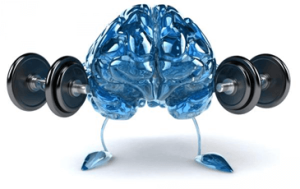Maintaining good vision isn’t just about genetics or age—it’s also significantly influenced by the lifestyle choices we make every day. A range of factors, from the food we eat to the activities we engage in, can help or hinder our eye health. Below, we explore how different aspects of lifestyle can directly impact vision and what you can do to preserve your eyesight.
For expert insights into how your overall health and wellness can impact your vision, visit Randy Luo, MD, MBA – Hand and Upper Extremity Surgeon, which provides a wealth of information on maintaining optimal health.
Diet and Nutrition: Fueling Your Eyes
What you eat plays a crucial role in the health of your eyes. Nutrients like vitamins C and E, omega-3 fatty acids, zinc, and lutein are essential for preventing age-related vision issues like cataracts and macular degeneration. Foods rich in these nutrients—such as leafy greens, fish (like salmon and mackerel), nuts, and citrus fruits—should be part of a balanced diet to promote better eyesight.
Key Nutrients for Healthy Eyes
- Lutein and Zeaxanthin: Found in leafy vegetables like kale and spinach, these antioxidants protect the retina from harmful blue light exposure.
- Omega-3 Fatty Acids: These are vital for maintaining retinal health and preventing dry eyes.
Hydration: Keeping Your Eyes Moist
Staying hydrated is not only important for your overall health but also for maintaining proper eye function. Dehydration can lead to dry eyes, causing discomfort and blurry vision. Drinking enough water throughout the day is vital to keep your eyes lubricated and functioning properly.
Exercise: More Than Just Fitness
Regular physical activity has benefits far beyond weight management—it can also promote better eye health. Engaging in aerobic exercises helps maintain healthy blood circulation, which ensures that your eyes receive adequate oxygen and nutrients. This circulation supports the retina and other critical parts of the eye, reducing the risk of conditions like glaucoma, age-related macular degeneration (AMD), and diabetic retinopathy.
Protecting Your Eyes: Shielding from Harm
UV rays from the sun are a leading cause of eye damage. Overexposure to UV light can contribute to cataracts and AMD. Wearing sunglasses with UV protection is essential to protect your eyes when outdoors. Additionally, if you’re involved in activities that pose a risk of eye injury (like sports or certain work environments), wearing protective eyewear can prevent long-term damage.
For those in need of specialized care for conditions that affect vision and physical health, Dr. Randy Luo’s Hand Therapy and Sports Medicine services may provide the support you need.
Why UV Protection is Essential
- UV Radiation: Prolonged exposure to UV radiation can lead to cataracts and macular degeneration.
Protective Eyewear: Essential for sports or any activities that involve potential eye injury.
Managing Screen Time: Preventing Digital Eye Strain
Excessive screen time can lead to digital eye strain, with symptoms such as dry eyes, blurred vision, and headaches. This is especially relevant in our tech-driven world. To alleviate strain, it’s recommended to follow the 20-20-20 rule: every 20 minutes, look at something 20 feet away for at least 20 seconds. Proper screen setup—adjusting brightness and minimizing glare—also helps reduce eye strain.
Smoking and Alcohol: Risks to Vision Health
Both smoking and excessive alcohol consumption are harmful to eye health. Smoking accelerates the development of cataracts, macular degeneration, and even optic nerve damage, while excessive alcohol can interfere with the absorption of nutrients essential for eye health. Quitting smoking and moderating alcohol intake can significantly improve your vision over time.
Regular Eye Exams: Early Detection Matters
Lastly, regular eye exams are crucial for detecting early signs of eye diseases that might not have symptoms in their initial stages. Conditions like glaucoma or diabetic retinopathy can often go unnoticed until they cause significant damage. Scheduling regular check-ups with an eye care professional ensures that any potential problems are identified and treated early.
In conclusion, lifestyle choices play a significant role in eye health. By adopting a nutritious diet, staying hydrated, exercising regularly, protecting your eyes from UV rays, managing screen time, and avoiding harmful habits like smoking and excessive drinking, you can preserve your vision for the long term. Regular eye exams are also an important step in maintaining optimal eye health.



